April 23rd brings us National Take a Chance Day—a great reminder that life is short and dreams should not be shoved in the “I’ll get to someday” corner. Having dreams and goals is the cornerstone to a life lived with passion. So, stir up those dust balls and let this day remind you of your fondest hopes and aspirations.
[caption id="attachment_832" align="alignright" width="300"]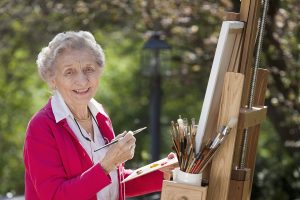 Caregiver Jamaica NY -
Caregiver Jamaica NY -
April 23rd is National Take a Chance Day[/caption]
“Twenty years from now you will be more disappointed by the things that you didn’t do than by the ones you did do.”—H. Jackson Brown.
If you look back at your life, is there something that you wish you’d done? There are few people that cannot recall at least one of these actions left undone. Replaying the mistakes or “should have beens” does little to create a happy life. You can, however, decide that from this moment forth you are going to say “Yes” to life.
“A journey of a thousand miles begins with a single step.”—Lao Tzu
Take a Chance Day is all about taking one step toward a dream or goal. People have a tendency to look at something desired and see the accumulated steps required to get there. It’s like climbing Mt Whitney by looking at the peak and continually thinking about how far you have to go. But in doing so, you miss the nuances of the climb. You lose the gifts along the way such as the sky pilot, a wildflower that blooms above the tree-line, or the red tail hawk hovering overhead.
Break down your dream into bite sizes. For instance, you want to write a book. Do you know that if you write only three pages a day you will have the first draft to your 300-page novel completed in only 100 days? That’s just a little over three months!
“Follow your bliss and don’t be afraid, and doors will open where you didn’t know they were going to be.”—Joseph Campbell.
Being a family caregiver is often about completing important daily tasks, but it’s important for both you, as a caregiver, and your parent to remember to enjoy some quality time together. One such shared inspirational activity is creating a bliss board, also known as a vision board. Grab a stack of magazines, scissors, some glue and two poster boards. As you’re leafing through the magazines, cut out pictures and words that strike a chord in you—a “Yes, I’d love to do, be or have that someday.” Then glue them on the board to create a beautiful vision of what you’d like to create in your lives. If your parent carries the belief that it’s too late in the game, consider the following:
Duncan Hines wrote his first food and hotel guide at the age of 55 and sold the company that developed Duncan Hines cake the right to use his name at age 73.
Lauran Ingalls Wilder, author of Little House on the Prairie, published her first novel at the age of 65.
Grandma Moses picked up her first paintbrush at the age of 76 after arthritis left her unable to continue with embroidery—her first love. She continued painting for 25 years and eventually saw her paintings sell for upwards of $10,000.
Resources: https://quoteinvestigator.com/2011/09/29/you-did/
https://www.goodreads.com/quotes/143093-follow-your-bliss-if-you-do-follow-your-bliss-you
https://www.goodreads.com/quotes/21535-the-journey-of-a-thousand-miles-begins-with-a-single
https://www.inc.com/bill-murphy-jr/14-inspiring-people-who-found-crazy-success-later-in-life.html
https://mentalfloss.com/article/24688/10-people-who-switched-careers-after-50-and-thrived


 Senior Care Massapequa NY - April is Car Care Month – Is Your Car Safe?[/caption]
Senior Care Massapequa NY - April is Car Care Month – Is Your Car Safe?[/caption] Home Care Brooklyn NY - How Can You Change Your Family's Mind When it Comes to Getting Help with Caregiving?[/caption]
Home Care Brooklyn NY - How Can You Change Your Family's Mind When it Comes to Getting Help with Caregiving?[/caption]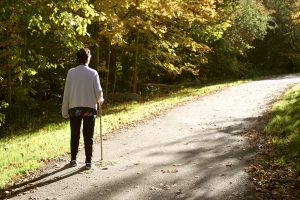 Elderly Care Bronx NY - Three Benefits Spring Brings for Recovery[/caption]
Elderly Care Bronx NY - Three Benefits Spring Brings for Recovery[/caption] Senior Care Manhattan NY - The Letter ‘S’ Is Vital for Health and Vitality as Seniors Age[/caption]
Senior Care Manhattan NY - The Letter ‘S’ Is Vital for Health and Vitality as Seniors Age[/caption]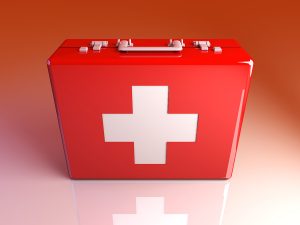 Elder Care Long Island NY - What Should be in Your Elder Loved One's Emergency Kit[/caption]
Elder Care Long Island NY - What Should be in Your Elder Loved One's Emergency Kit[/caption]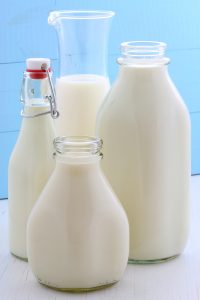 Homecare Hicksville NY - Tips for Controlling Fluids[/caption]
Homecare Hicksville NY - Tips for Controlling Fluids[/caption] Your elderly loved one has spent many years choosing her own food, but she may be at a point where she needs to consider nutrition over her favorite food items. Adding more nutrition doesn't have to be a chore, however.
Your elderly loved one has spent many years choosing her own food, but she may be at a point where she needs to consider nutrition over her favorite food items. Adding more nutrition doesn't have to be a chore, however.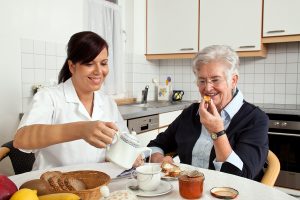 Caring for an elderly adult poses a wide variety of challenges for your elderly loved one and for you as their family caregiver. It is important that you not only recognize these challenges, but equip yourself with coping tools to help you address these issues effectively to give your senior the safe, healthy, and comfortable lifestyle that they desire and deserve.
Caring for an elderly adult poses a wide variety of challenges for your elderly loved one and for you as their family caregiver. It is important that you not only recognize these challenges, but equip yourself with coping tools to help you address these issues effectively to give your senior the safe, healthy, and comfortable lifestyle that they desire and deserve.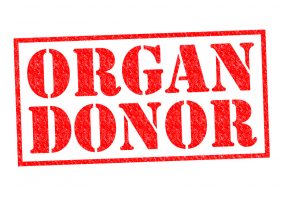 When you think of February 14, you likely first think about Valentine’s Day. As a family caregiver, however, you should be aware of another observance that makes the hearts so popular in Valentine’s decorations even more meaningful. February 14 is also National Donor Day, a day set aside to raise awareness about organ donation, what it means for those in need of donations, and how it can impact the lives of those who choose to give the gift of life through donation. Understanding this can help you to guide your parent toward the decision that is right for them as you make the choice that is right for you. For many elderly adults, knowing that they are an organ donor gives them a great sense of pride and confidence that they can still do good even when their life has come to an end.
When you think of February 14, you likely first think about Valentine’s Day. As a family caregiver, however, you should be aware of another observance that makes the hearts so popular in Valentine’s decorations even more meaningful. February 14 is also National Donor Day, a day set aside to raise awareness about organ donation, what it means for those in need of donations, and how it can impact the lives of those who choose to give the gift of life through donation. Understanding this can help you to guide your parent toward the decision that is right for them as you make the choice that is right for you. For many elderly adults, knowing that they are an organ donor gives them a great sense of pride and confidence that they can still do good even when their life has come to an end.